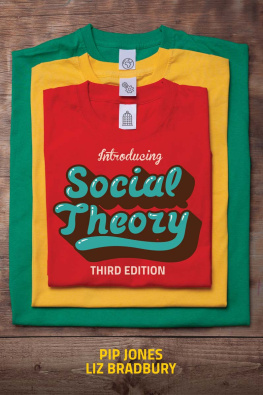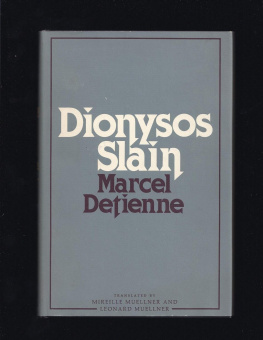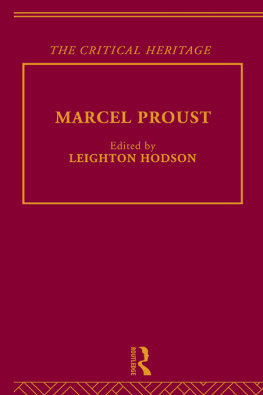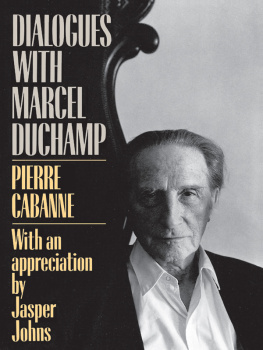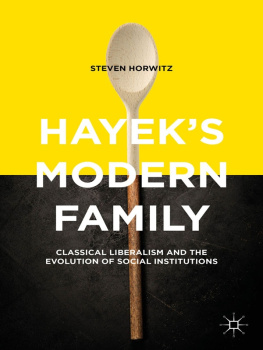
Beginning classical social theory
Beginnings
Series editors: Peter Barry and John McLeod
Former series editor: Helen Carr
Beginnings is a series of books designed to give practical help to students beginning to tackle recent developments in English, Literary Studies and Cultural Studies. The books in the series
demonstrate and encourage a questioning engagement with the new;
give essential information about the context and history of each topic covered;
show how to develop a practice which is up-to-date and informed by theory.
Each book focuses uncompromisingly upon the needs of its readers, who have the right to expect lucidity and clarity to be the distinctive feature of a book which includes the word beginning in its title.
Each aims to lay a firm foundation of well understood initial principles as a basis for further study and is committed to explaining new aspects of the discipline without over-simplification, but in a manner appropriate to the needs of beginners.
Each book, finally, aims to be both an introduction and a contribution to the topic area it discusses.
Also in the series
Beginning theory (4th edition)
Peter Barry
Beginning film studies
Andrew Dix
Beginning realism
Steven Earnshaw
Beginning ethnic American literatures
Helena Grice, Candida Hepworth,
Maria Lauret and Martin Padget
Beginning Shakespeare
Lisa Hopkins
Beginning postcolonialism (2nd edition)
John McLeod
Beginning modernism
Jeff Wallace
Beginning postmodernism (2nd edition)
Tim Woods
Beginning classical social theory
Marcel Stoetzler
Manchester University Press
Copyright Marcel Stoetzler 2017
The right of Marcel Stoetzler to be identified as the author of this work has been asserted by him in accordance with the Copyright, Designs and Patents Act 1988.
Published by Manchester University Press
Altrincham Street, Manchester M1 7JA
www.manchesteruniversitypress.co.uk
British Library Cataloguing-in-Publication Data
A catalogue record for this book is available from the British Library
Library of Congress Cataloging-in-Publication Data applied for
ISBN 9781 7 8499 145 6 paperback
First published 2017
The publisher has no responsibility for the persistence or accuracy of URLs for any external or third-party internet websites referred to in this book, and does not guarantee that any content on such websites is, or will remain, accurate or appropriate.
Typeset in Monotype Ehrhardt by
Servis Filmsetting Ltd, Stockport, Cheshire
Contents
I am extremely grateful to Christian Klesse, Hae-Yung Song, Susan Jacobs, Howard Davis and, in particular, Stefan Machura for comments on the manuscript. All remaining flaws and errors are mine. I also thank all the students on my SocTheory modules at Bangor for keeping me busy thinking about how to teach. I am also grateful to the School of Social Sciences, Bangor, for financing the production of the index, to Andrew Kirk for his excellent work on the manuscript and to Martin Hargreaves for indexing.
Beginning Classical Social Theory introduces you to thirteen key texts of social theory, beginning with a text from 1824 by Auguste Comte who was one of the first to use the word sociology and ending with one from 1965 by Theodor W. Adorno.
This is not a textbook in the usual sense a comprehensive, well-balanced and conclusive summary of whatever it is most important to know about all the main theorists. There are quite a few such books, and I list the ones that I find to be the best in the last chapter. Beginning Classical Social Theory does both less and more than your regular textbook.
Less, because I would not want to claim that all the important theorists are represented, and the book will not address everything that is important about the ones who are covered. In fact, you are introduced to only one text by each author, not any authors life work as a whole. More, because you are invited to take a very close look at these thirteen texts. I have selected texts
that make interesting and important but wildly differing arguments,
that give you an idea of how their authors think and write, and
that, taken together, create an overview of some of the key themes of classical social theory.
Nothing more than that although this should be enough to expect from a small book like this in terms of content covered. But then, there is something else.
My hope is that this book will help you to get under the skin of these classic texts, and that it will inspire you first of all to read the texts in question after you read this book, or perhaps even in parallel with it and then other texts by these and other authors. I want this book not only, and not even primarily, to be a source of information and knowledge, but to be a tool for you: a tool for learning how to read theory. There is a technique to reading theory, and knowing this technique is more important than knowing theories. This is not rocket science: the technique consists simply of systematically, as completely as possible, excerpting everything the text says, and also any immediate thoughts I have about it as in brainstorming including anything noteworthy about how the text operates. This includes highlighting words that point to the logical structure of the text, such as but, however, therefore, nevertheless, on the contrary. The point is to avoid quick judgements: not to shoot from the hip. As I can better show than explain this method, this book is a bit like an invitation to watch me doing my homework. Other people will have different ways of working, and you will find your own, but here you will find basically a protocol of what I do when I study.
I hope I have written this book in the spirit of what I am doing here you can do too: this is the attitude signalled by the philosopher and sociologist Theodor W. Adorno to his audiences, as described by one of his students (Detlev Claussen, in the German news magazine Der Spiegel, 2003). I have always found the grand, definite, complete student textbook that speaks from an all-knowing perspective to be a rather authoritarian form of text. By contrast, an assemblage of fragmentary, incomplete but detailed analyses that only in the mind of an active reader can form some kind of coherent picture is educational in the strict sense of the term. You are this active reader.
Studying theory means dealing with texts, and therefore requires you to know how to work with texts. Texts have a materiality of their own their structure, patterns of argument, rhetorical strategies of persuading a reader. After all, the Latin word textum means something that has been woven together, a fabric. To understand the textile structure of the text, you need to take it apart, look at the threads and put it back together again. Luckily you do not need to do this all the time: once you have done it a number of times with texts that are sufficiently typical, you can X-ray through the surface of many related texts in the same way that a carpet dealer can tell the value of a carpet from a distance.




